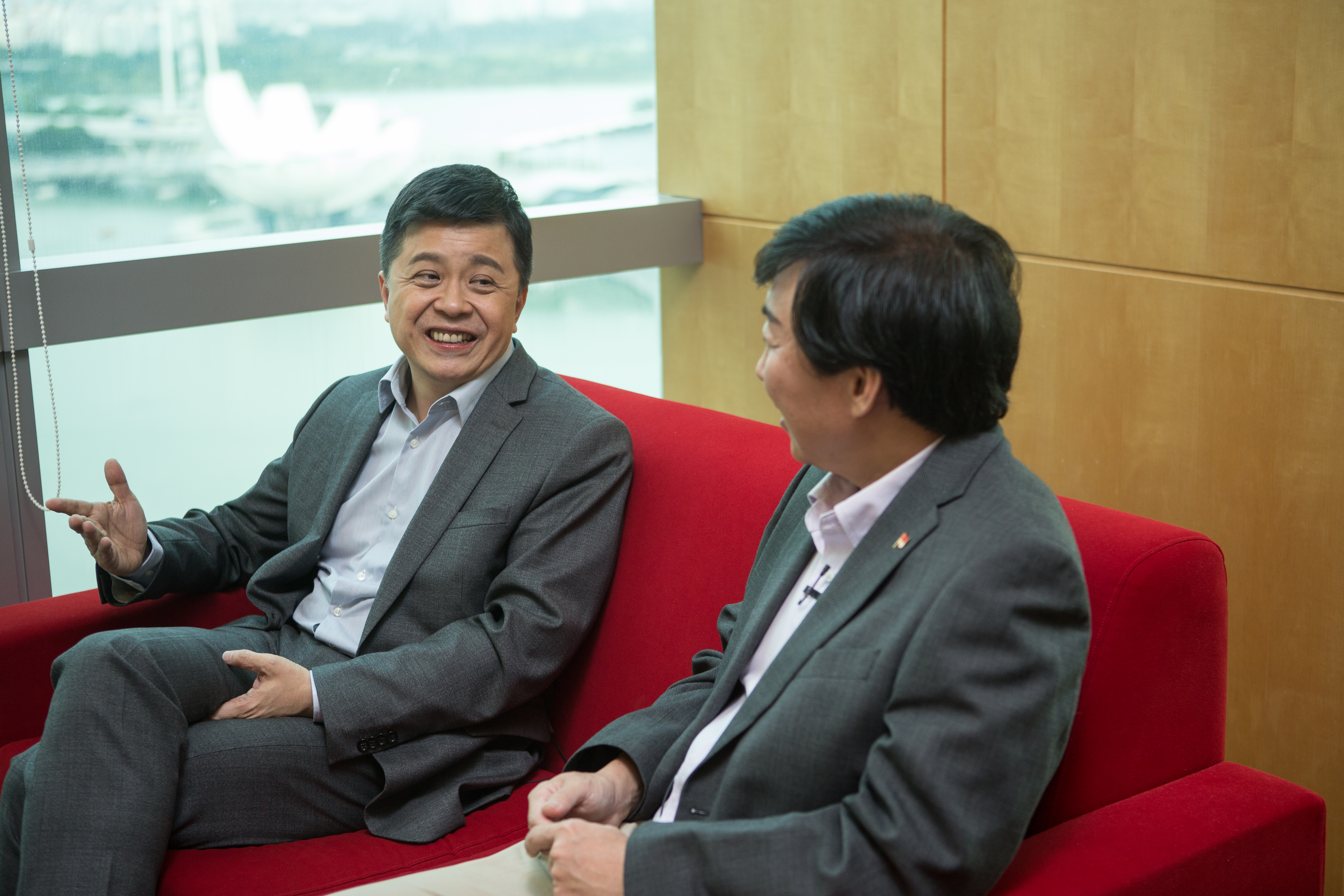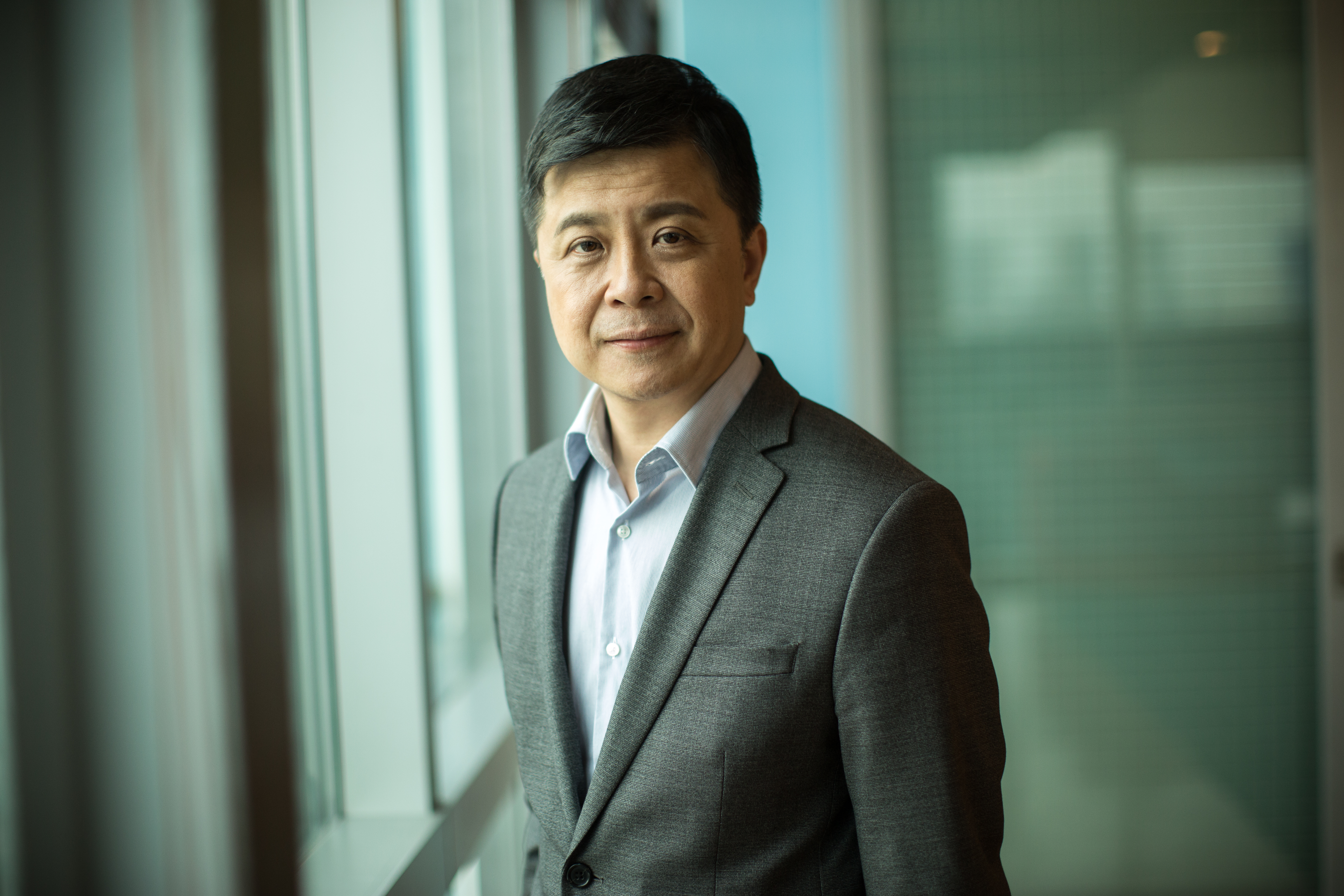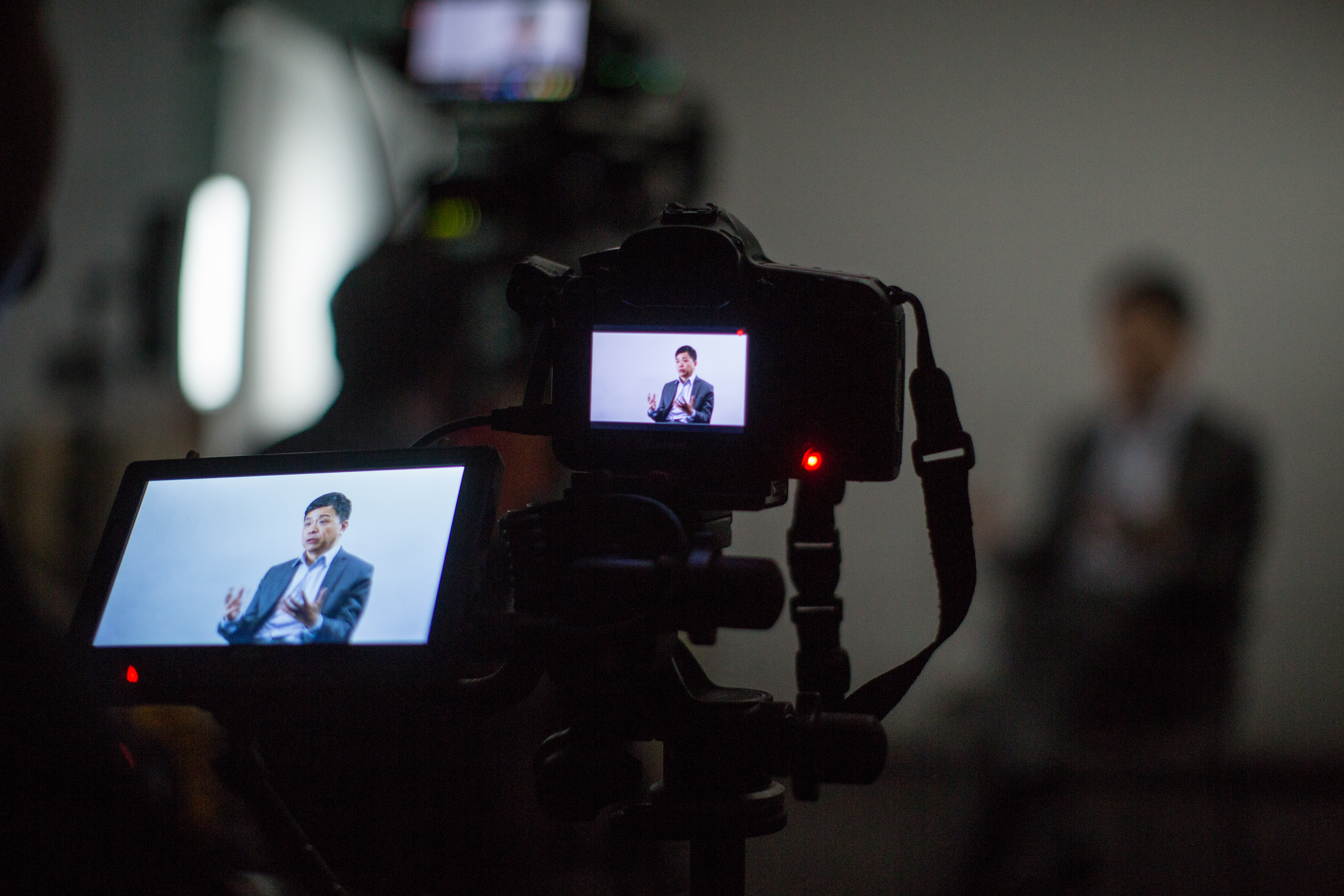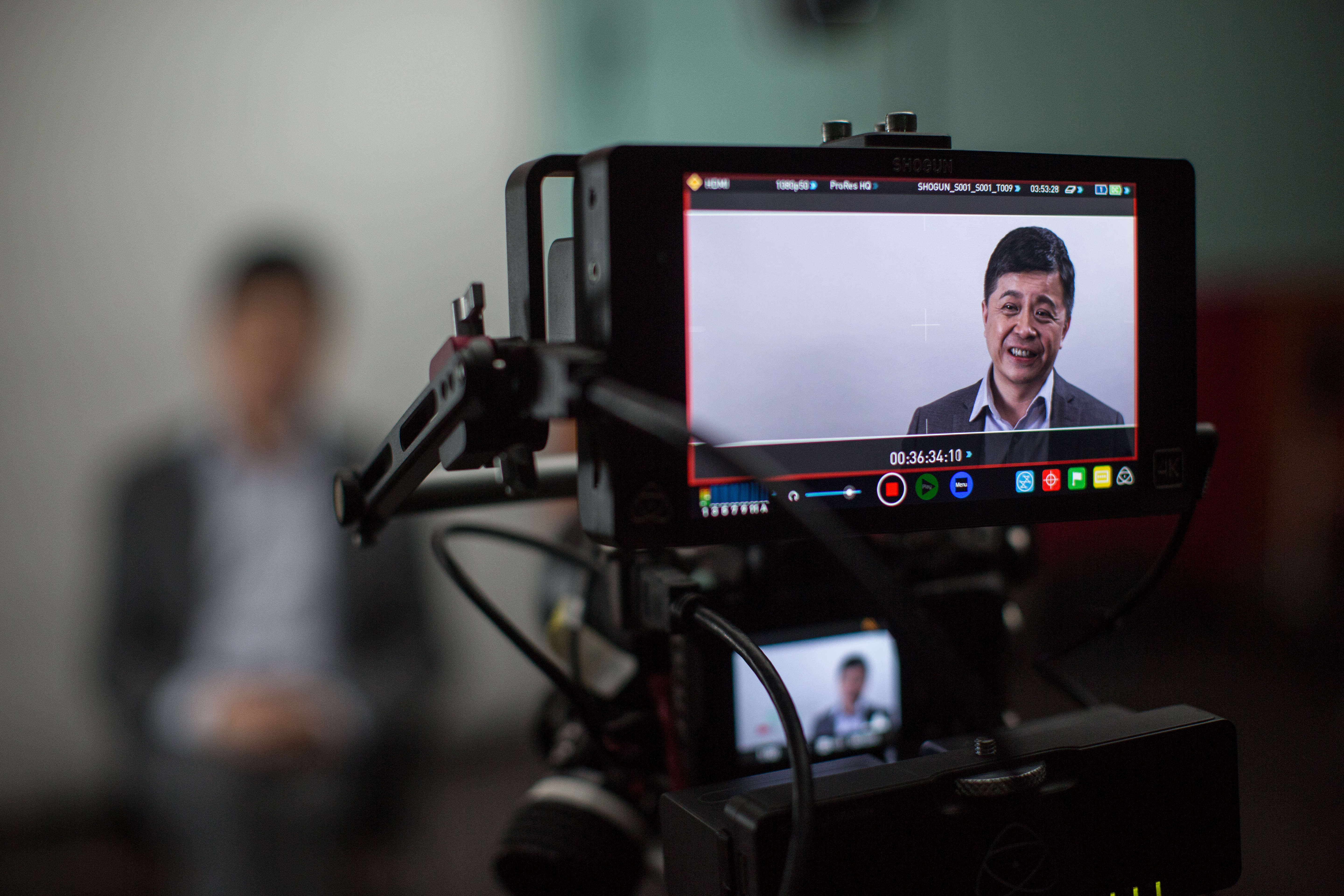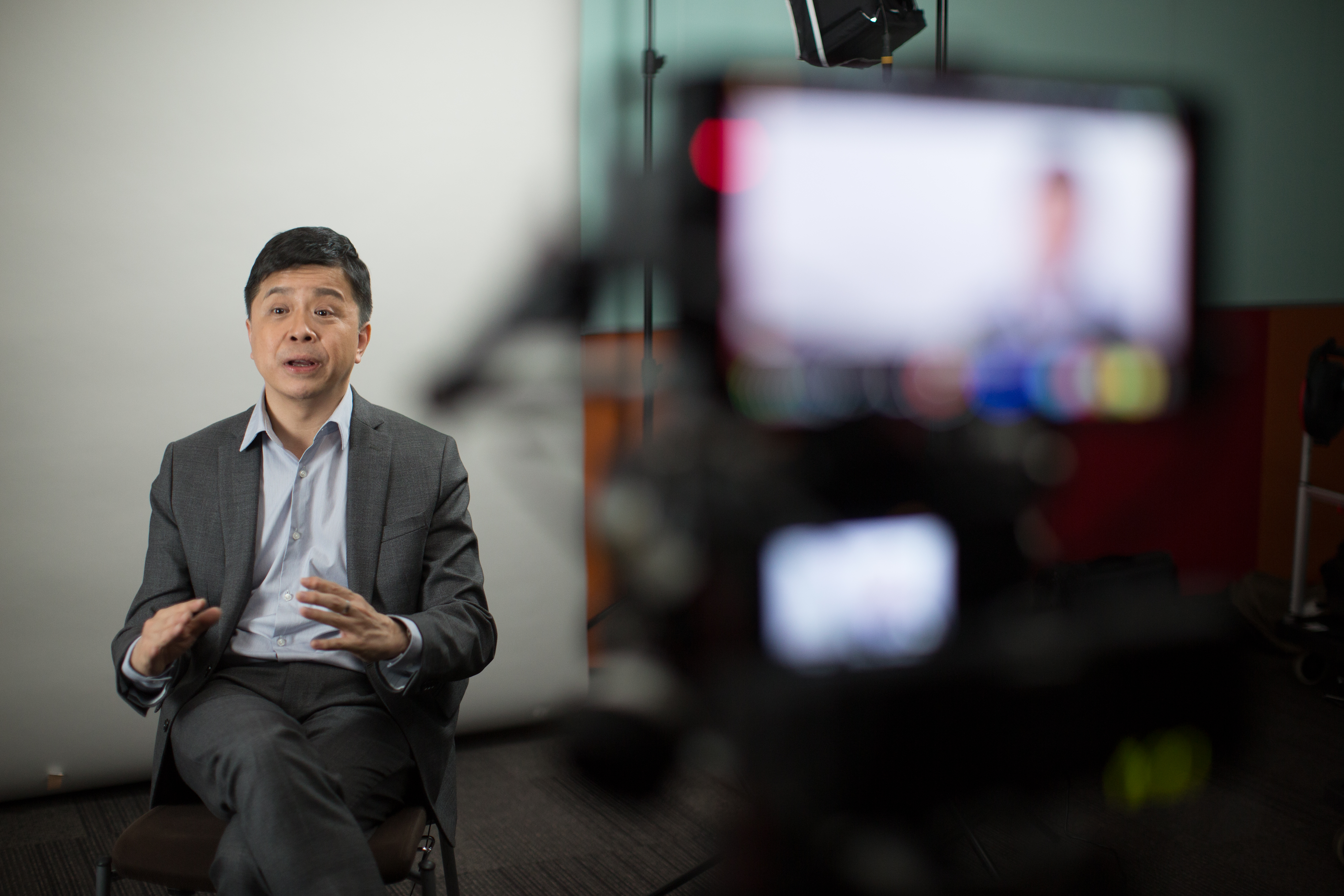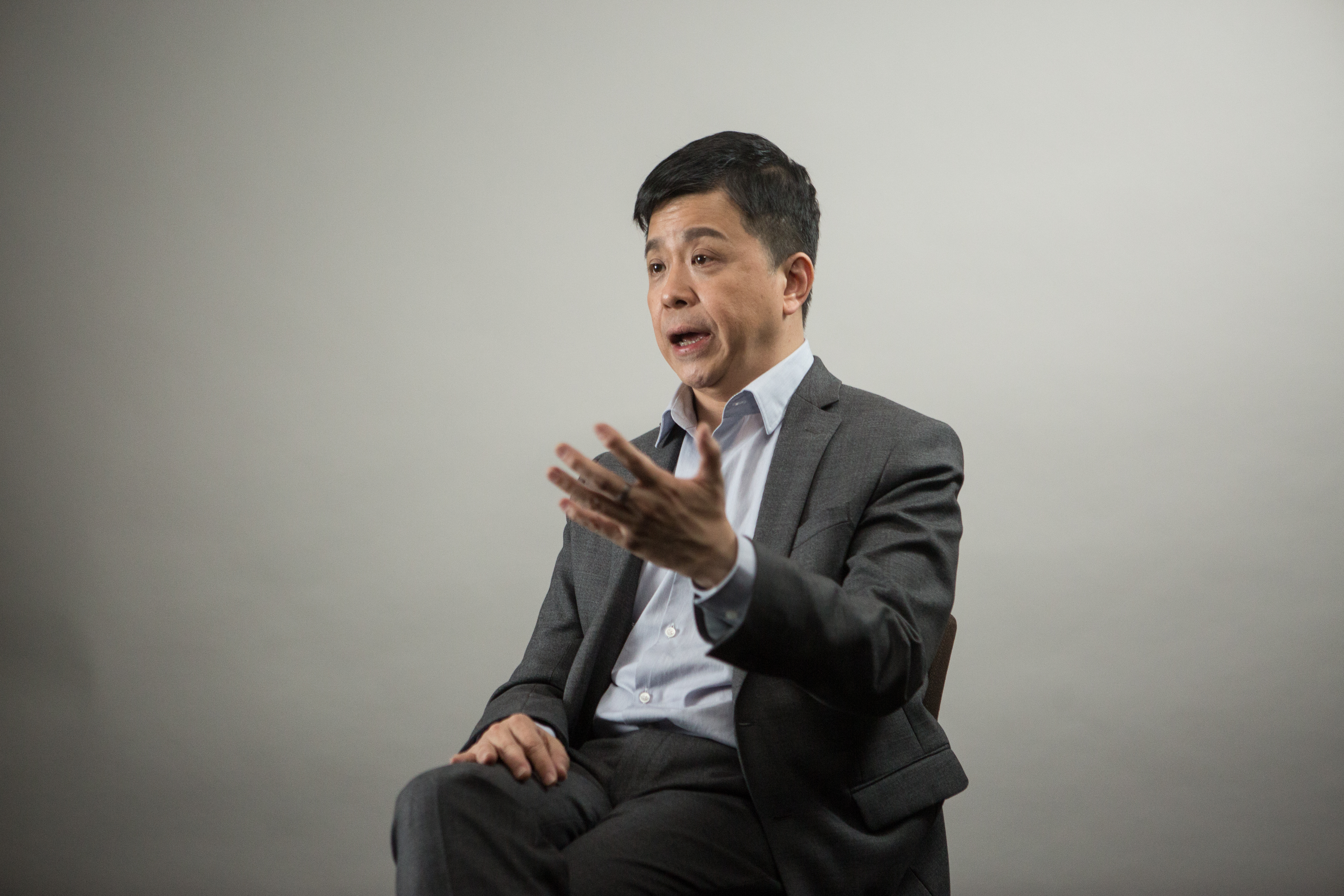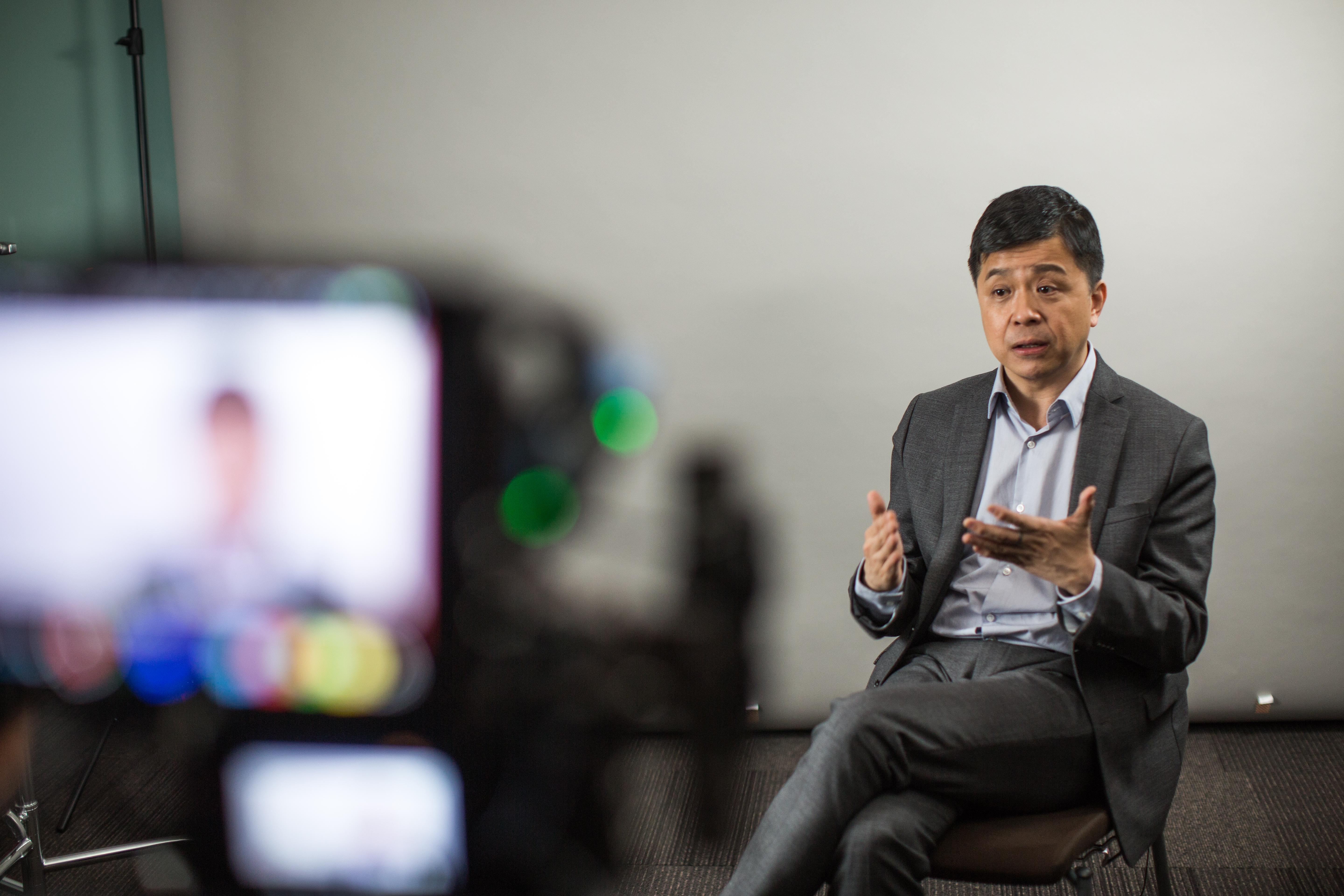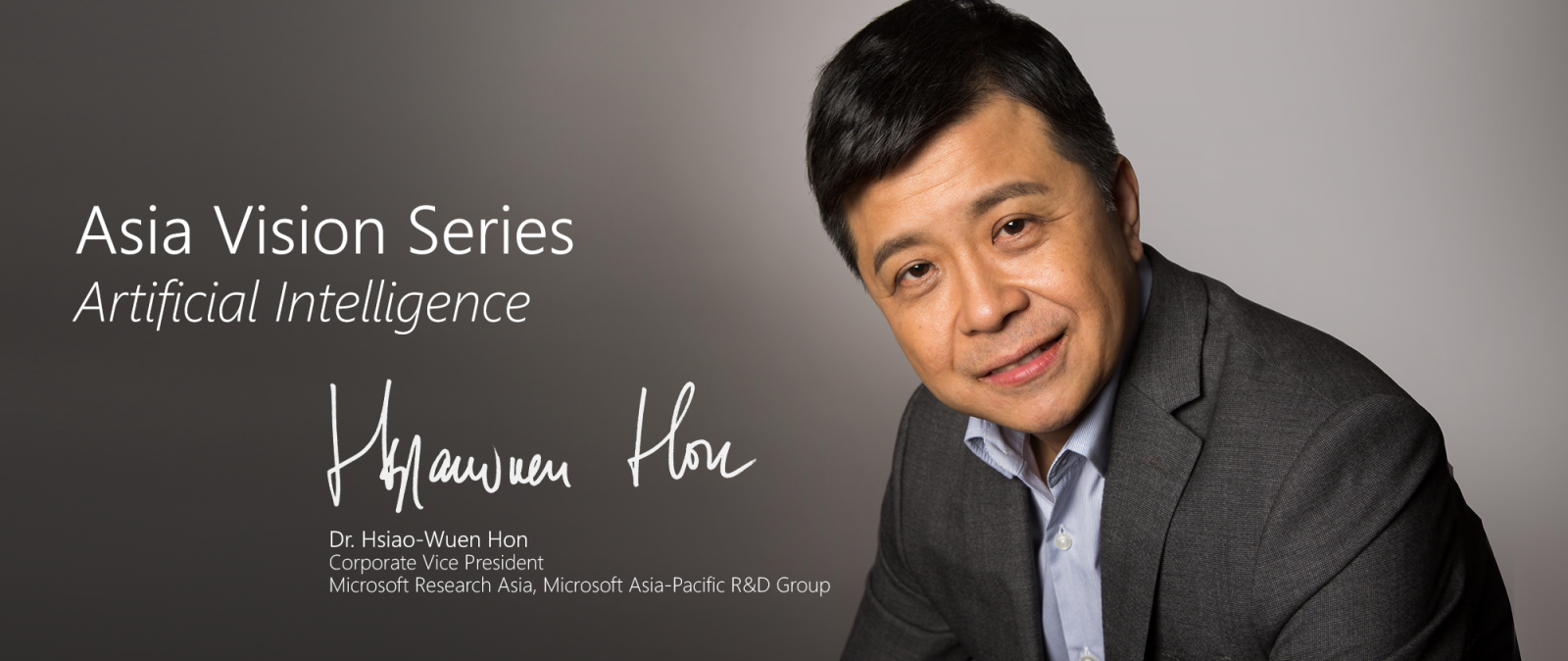
When AI meets HI
In our Asia Vision Series features we dive into key industry trends and issues with our subject matter experts and visionaries in the region. In part 2 of 3 in this interview, Koh Buck Song, author and editor of more than twenty books and former political supervisor for Singapore’s national broadsheet The Straits Times, speaks with Dr. Hsiao-Wuen Hon, corporate vice president of Microsoft Research Asia, Microsoft Asia-Pacific R&D Group – a thought leader in the field of innovation especially artificial intelligence. He shares his personal journey toward chasing his passion for innovation, and the relationship between artificial and human intelligence.
Human-robot romances might be a stretch too far in the imagination of science-fiction movie-makers, but the real-life relationship between humans and computers is “harmonious”, says Microsoft’s Dr. Hsiao-Wuen Hon. Likening this teamup to the two parts of a brain, he thinks that computers are “the best-ever left brain” for logic and rationality, while humans form “the best-ever right brain” for creativity, judgment and wisdom. Together, man and machine create the best of both worlds. Hence, he suggests a new equation: Artificial intelligence (AI) + human intelligence (HI) = intelligence, or augmented intelligence, if you will. At Microsoft, the two – AI and intelligence – are not even seen anymore as a dichotomy.
Humans, Dr. Hon stresses, should always be at the centre of this discussion. There is certainly no reason to fear machines. Killer robots make for good movies, but they don’t exist in reality. For example, driverless cars are not about to rule the world. If anything, in such cars, the all-round cameras and use of laser and radar technology are just more proof of how much smarter humans are than their robots, and how this will always be so.
Who is to blame, however, when things go awry? With something like the science-fiction writer Isaac Asimov’s “Three Laws of Robotics” on the principles regulating robots, Dr. Hon thinks people have got it wrong: All laws apply to humans, not machines; they seek to regulate human behavior towards machines, not machines’ interactions with the environment.
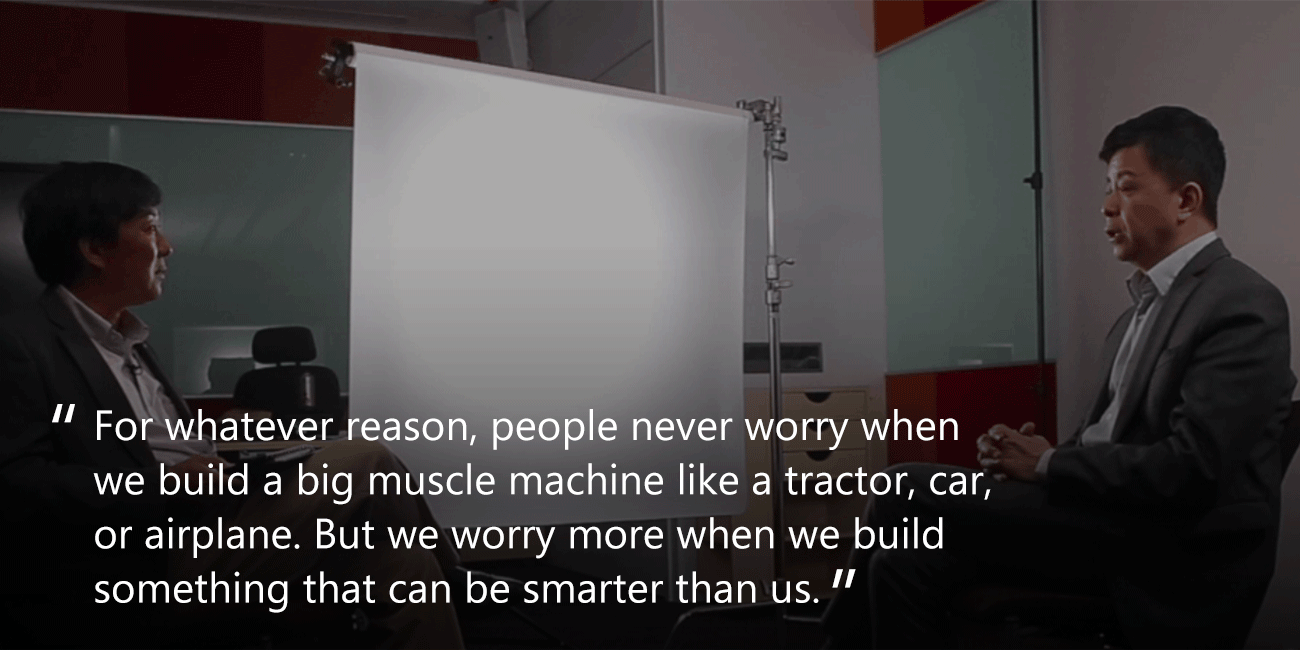
In Hollywood’s misrepresentation of machines being pitted against humans – in movies from Skynet in Terminator to Ex Machina – Dr. Hon observes a common thread: People have a deep fear of being outsmarted by machines. But they should actually maintain the same attitude as towards all the bigger and stronger machines – tractors, cars, airplanes – that have been invented to help humans perform heavy tasks or travel long distances.
The fact remains that no proof exists that consciousness can be programmed into machines. “A machine by itself is like a dead horse. If no one programs it, it can’t do anything,” he says. Machines can be programmed to be malicious, but this would reflect on human morality, not machines’ lack of conscience. Behind every algorithm – no matter how well-written – is a human.
Instead, most people are using AI to improve lives. It is human ingenuity that enables the precise calculations to discover the truth about the universe, such as computing the trajectory needed for lunar spacecraft to reach the moon, notes Dr. Hon, who remembers well getting in line for tickets to watch the first Star Wars movie in the 1970s, and has remained a fan of the inter-galactic universe of the Force ever since.
Looking ahead, he wants people to focus on what can be achieved when humans combine their ideas with the abilities of a computer. Humans should leave the data crunching to machines and concentrate on leveraging human insights to advance humanity in unprecedented ways. No one would think of competing with a machine on computing tasks such as calculating the square root of 2 to the last decimal point faster.
My own dream might benefit other people, and I am sure that other people’s dreams will benefit me. This is why diversity and inclusion are so important. AI + HI will bring out everybody’s dreams.
The way ahead is for man and machine to work together to produce a higher form of “augmented intelligence”. This kind of AI, he is sure, will continue to bring much benefit to human life in many areas, including machine learning and the Internet of things. The end in mind is to apply AI to enhance human productivity and mobility. This will be achieved more easily and to greater effect in places that are embracing and applying AI more effectively, for example, deploying AI to build a smart city.
In future, the most exciting development in AI is when AI and human intelligence work together to realise the dreams of many more people. “My own dream might benefit other people, and I am sure that other people’s dreams will benefit me. This is why diversity and inclusion are so important. AI + HI will bring out everybody’s dreams.”
How will AI change the way we live and where can we expect the biggest impact? Dr. Hon shares his thoughts on this and more in the next and final installment of this series. Read part 1 here, Big dreams behind Xiaoice, where he elaborates the details behind his personal journey on chasing his passion for innovation and AI.
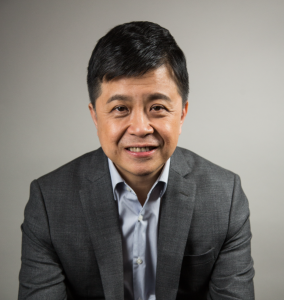 Dr. Hsiao-Wuen Hon
Dr. Hsiao-Wuen Hon
Corporate Vice President, Microsoft Research Asia
Microsoft Asia-Pacific R&D Group
Dr. Hon drives Microsoft’s strategy for research and development activities in the Asia-Pacific region, as well as collaborations with academia. He has been with Microsoft since 1995, joining Microsoft Research Asia in 2004 overseeing research in Internet search, speech and natural language, systems, wireless and networking. In addition, he founded and managed the Search Technology Center (STC) from 2005 to 2007, and has overseen the development of Bing in Asia Pacific.
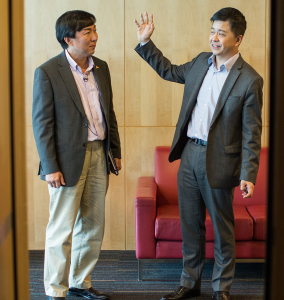 Koh Buck Song
Koh Buck Song
Koh Buck Song is an author who has written and edited over twenty books, and a consultant in branding, communications strategy and corporate social responsibility in Singapore. He drove the positioning of Singapore as a “global entrepolis” as former Head of Marketing, Corporate Communications and Strategic Planning at the Economic Development Board from 1999 to 2005. Buck Song was also a former a political supervisor for The Straits Times. He graduated from the University of Cambridge and the University of London in the United Kingdom, and from the John F. Kennedy School of Government at Harvard University in the US, where he was a Mason Fellow and earned a master’s degree in public administration.





